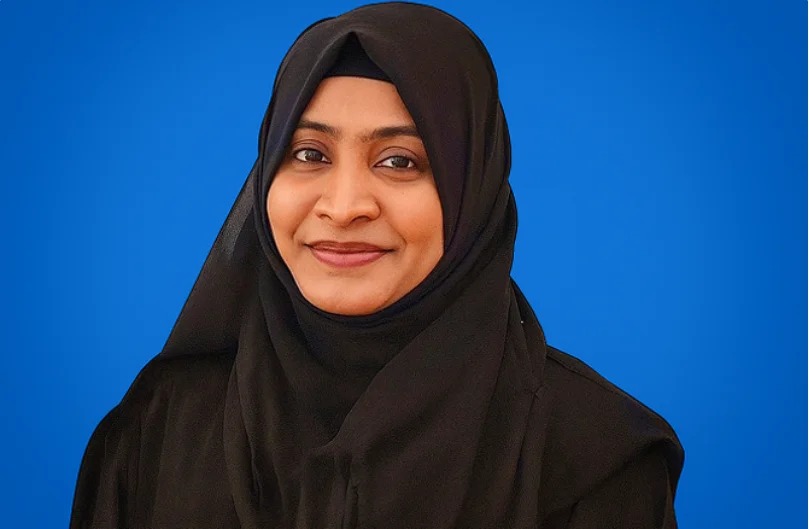Reading time : 2 minutes
In the verdant heart of Assam, somewhere between rolling tea gardens and the rhythmic flow of the Brahmaputra, a vibrant voice has risen one that speaks not just through airwaves but through the hearts and hopes of her community. Nazma Sultana, a Radio Jockey and social communicator, embodies this resonance. Her journey is one of overcoming boundaries, amplifying marginalized voices, and creating meaningful social change—an inspiring testament to passion and purpose.
Nazma’s story began in a modest Assamese household, where the dialects of her surroundings—the lyrical Assamese, the intricate Bangla, and the universal Hindi—found space in her being. Growing up, she was drawn to the power of words. Stories shared around dinner tables, folk tales narrated under kerosene lamps, and radio voices delivering news from distant cities lit a spark in her young mind: she wanted her voice to matter.
Stepping onto the Airwaves
Breaking into radio in Assam much like elsewhere was no frictionless ride. In addition to gendered expectations, the media there often prioritizes commercial over community-driven narratives. But Nazma was determined. With no formal training but armed with empathy, she began at a small community station. Here, she discovered radio’s potential to connect and transform. Her soft-spoken commentary, earnest interviews, and sincerity cultivated trust among listeners.
Her empathy-driven shows became her signature. She hosted “Manoranjan Monsoon” (Monsoon of Joy), a cultural show celebrating Assamese music, and “Sondhiya Shweta” (Evening’s White Calm), which spotlighted local heroes—schoolteachers, farmers, healthcare workers—narrating their lived experiences. These programs weren’t only entertaining; they were bridges between the “forgotten” and the “listening.”
Social Communication: Beyond Entertainment
For Nazma, radio was more than musical interludes—it was a platform for real change. When floods or disruptions hit rural Assam, her station became a critical lifeline. She broadcast essential information on relief camps, food distribution, and safety tips—often coordinating directly with local authorities and NGOs.
One harrowing year, when the Brahmaputra surged and entire villages were isolated, Nazma organized a “dharma-bhav” segment—airing religious tunes and messages of solace for displaced families, aiming to steady their spirits. Such programming drew wide praise, as it wove together practical aid and emotional support.
She also championed women’s empowerment. Nazma ran a weekly segment called “Nari Jyoti,” inviting women from diverse backgrounds—artisans, educators, mothers, young entrepreneurs—to share their stories, challenges, and aspirations. These conversations broke stereotypes, inspired others, and turned an ordinary radio booth into a platform for liberation.
Nazma’s ascent wasn’t free of obstacles. Funding limitations for community radio meant shows were often live, with no room for errors or re-recordings. Technical equipment was often dated. Yet Nazma’s ingenuity turned constraints into strengths: she simulated studio acoustics using curtains, recruited local volunteers for editing, and sourced sponsorships from small businesses eager to support social messaging.
Moreover, being a woman in a regional media role had its social pressures. Long hours in the studio sometimes sparked criticism in conservative pockets, and juggling family responsibilities tested her resilience. But supported by her close-knit community and driven by her convictions, she persevered—each challenge shaping her into a stronger, more authentic communicator.
Nazma’s impact rippled beyond her listeners. Countless women, emboldened by her “Nari Jyoti” platform, started local ventures—from weaving cooperatives to tutoring centers. Community groups engaged more actively in disaster preparedness after her appeal—through practical radio messaging—proved vital during calamities. Her station also became a case study for other regional broadcasters: how empathetic programming, rooted in local identity and social responsibility, can coexist with entertainment to truly serve the public.
A Beacon for Aspirants
Nazma’s journey speaks volumes: success isn’t always about fame or grandeur—it’s about touch, relevance, and integrity. She often mentors aspiring community broadcasters, telling them: “Your voice doesn’t need to echo in skyscrapers; it needs to resonate in hearts.”
Nazma Sultana is more than just an RJ—she’s Assam’s social communicator, weaving local flavors, dreams, and challenges into her broadcast tapestry. She has shown that radio, in the right hands, becomes more than sound—it becomes solace, solidarity, and a song of progress.
Her story is a reminder: when passion meets purpose, even a single voice from a remote corner can light up lives.

